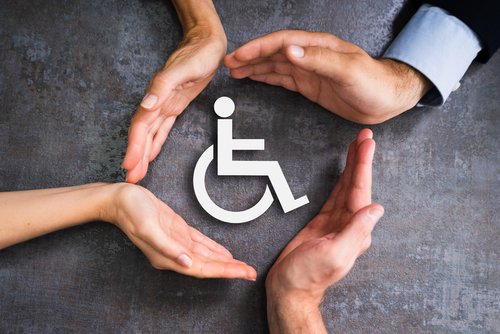MEPs have backed new action that aims to boost the rights of people with disabilities in the EU.
Belgium, (Brussels Morning Newspaper) Deputies backed a report – “Towards equal rights for people with disabilities” – that proposes radical changes.
The author of the report, Left Group MEP Anne Sophie Pelletier (France Insoumise), said the move send “a strong signal for equality and respect for fundamental rights.”
It is estimated that some 87 million people live with disabilities in the EU. They are still said to face discrimination with their fundamental rights violated every day.
Pelletier’s report proposes concrete action for implementing the United Nations Convention on the Rights of Persons with Disabilities.
The proposals consider the specific needs of those most at risk, including children, the elderly, and refugees. Women with disabilities are particularly vulnerable: 13 EU member states still practice forced sterilization, and most don’t respect reproductive rights.
It is also necessary, says the report, to make changes to the European disability card system to guarantee real freedom of movement for people with disabilities. It is essential to establish mutual recognition of the level of disability between member states, so people can preserve their rights, no matter where they are in the European Union says the author.
The report states that many basic aspects of our society are still inaccessible to people with disabilities, such as housing, education, care, justice, transport, culture, sports, and political life.
It demands improved public policies to ensure that everyone has “real access and proposals from the European Commission for a horizontal anti-discrimination directive.”
After her report was adopted, Pelletier commented on the vote: “For far too long, the difficulties of people with disabilities have been ignored in the European Union. They are citizens whose rights are violated on a daily basis. It is high time for this to change, and I am delighted that the debate on this report “Towards equality for people with disabilities” can move our society towards real equality for all.”
Meanwhile, in a resolution adopted with a show of hands, MEPs have also called on the Commission to urgently address the existing digital divide with an updated cohesion policy.
Noting that increasing digitalization can generate socio-economic differences between people and countries, they suggest using NextGenerationEU funds to help bridge the gaps in digital skills and infrastructure.
Currently, 54 % of people in the EU possess at least basic digital skills. The EU’s aim is to reach a share of 80 % by 2030.
MEPs voiced their concern about the decline of physically-present public services, especially in rural areas and the outskirts of cities. They stressed that the digital transition must take place in a way that benefits everyone while recognizing that cashless payments and fast online transactions have brought a number of advantages to the single market,
S&D member Isabel Carvalhais said: “It is an ethical and political imperative that men and women, children, young people, elderly people, vulnerable groups – all 137 million citizens living in rural areas – have the same conditions as any other EU citizen, in order to fully concretize their citizenship. For that, we need urgent action.”




